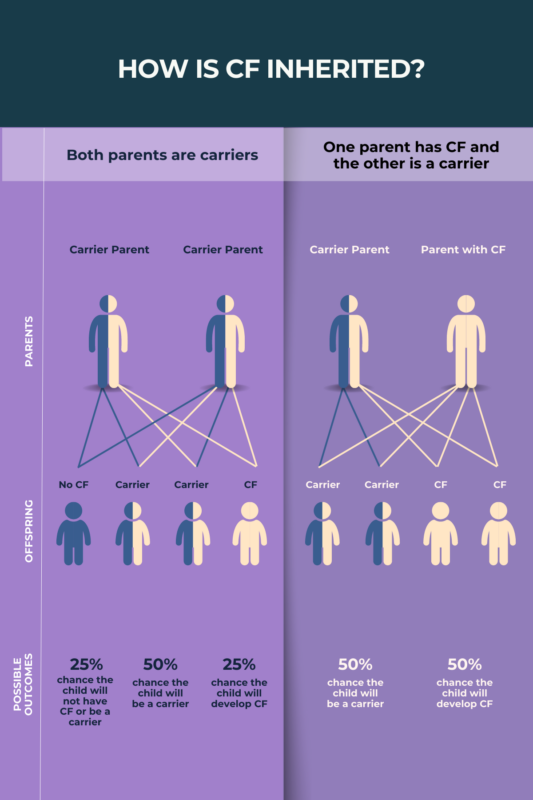FAQs about cystic fibrosis causes
Cystic fibrosis (CF) is an inherited genetic disorder that is caused by mutations passed from parents to their biological children. There are no lifestyle choices that can cause the disease or affect the risk of developing it. However, for people who have CF, lifestyle choices like avoiding smoking may be helpful for managing the disease.
Nearly all men with cystic fibrosis (CF) are born without the vas deferens, the tube that normally transports sperm out of the testes. As a result, most men with CF do not have sperm in their semen. However, since sperm production in the testes is normal for most men with CF, those who wish to have biological children can usually do so using assistive reproductive techniques. The thick mucus that characterizes CF can also cause issues in the female reproductive tract, such as impairing the movement of sperm across the cervix. However, most women with CF who want to get pregnant are able to do so.
Pseudomonas aeruginosa is a type of bacteria that can cause lung infections in people with cystic fibrosis (CF). Infection with this bacterium does not cause CF itself; CF is a genetic disease caused by mutations inherited from a person’s parents. Pseudomonas aeruginosa infections can cause CF symptoms to worsen, and chronic infections can be a major driver of lung damage in CF.
Cystic fibrosis is inherited in an autosomal recessive fashion, meaning that a person will only develop the disease if both copies of the CFTR gene (each inherited from either biological parent) carry a disease-causing mutation.
Cystic fibrosis (CF) is caused by mutations in the gene CFTR. More than 2,000 different mutations in this gene have been reported. In all cases, mutations impair the function of the CFTR protein, which results in the production of the thick, sticky mucus that is mainly responsible for symptoms of CF.

 Fact-checked by
Fact-checked by 





